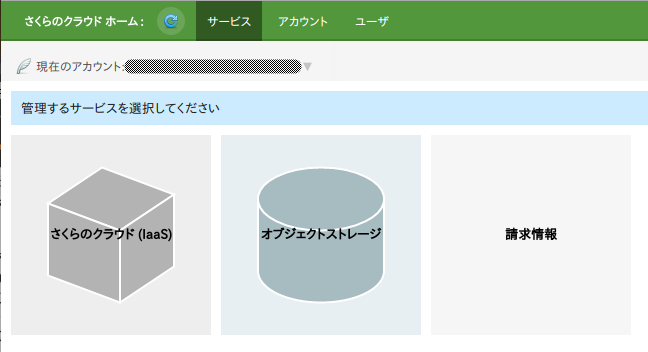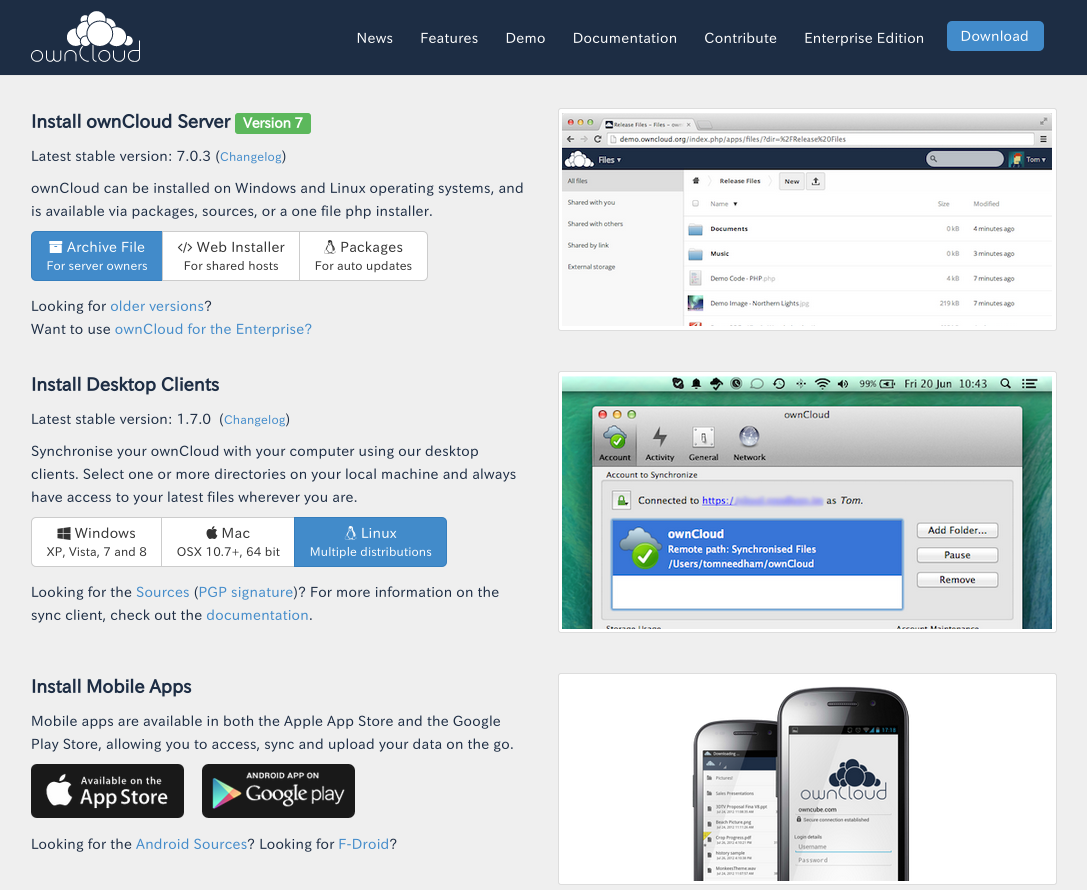・WebDAV+SSLを構築する
VPS上のディスク容量にまだ余裕があるし、DropBoxの容量もだいぶ少なくなってきたので、WebDAVとか作ってみようと思う。
外出先でiPhoneとかでデータを見たい時があったりするし、データはクラウド上に保存しておいたほうが何かと便利だし。
それに、SVN(Subversion)とか使えば「なんちゃってDoropBox」みたいなのができるかもしれないし。。
iPhoneのアプリ「Ari Sharing」や「GoodReader」を使うとWebDAV上のファイルを参照したりできるので便利だと思う。
「GoodReader」ではファイルの更新もできるよ!。一度WebDAVからダウンロードする必要があるけど・・・
「Ari Sharing」でも出来るのかもしれないけどやり方解らなかった。
とりあえす、WebDAVを作ってみよう。
前提条件:
Apache+SSL環境構築が出来ていること
方針:
・WevDAV専用のディレクトリでWebDAV+SSLを使用する。
・WebDAVへのアクセスはSSLのみでしか受け付けない
・WebDAVの認証はBASIC認証にする(SSLでしか接続させないので。。)
注意:
Windowsでネットワークドライブとして割り当てるには、Apache+SSL環境構築で掲載している「ブラウザ用の証明書作成」が必要。
これがないとWindows7ではネットワークドライブの割り当てができないらしい。
試した感じだと、WebDAVをドライブに割り当てるにはSSLで暗号化されていること、かつ証明書を持っていることが条件な感じ。
iPhoneとか、Linuxでは証明書なくても出来てしまうけどWinでは、ないとダメっぽい。
WebDAVディレクトリを作成
mkdir /home/webdav |
設定ファイルを新規作成
vi /etc/apache2/sites-available/111-webdav-ssl
Alias /dav /home/webdav
DAV On <<WebDAV有効
SSLRequireSSL <<SSL接続のみ有効
AuthType Basic <<認証タイプ
AuthName "Brokendish Cloud" <<ダイアログ表示用メッセージ
AuthUserFile /hoge/hogehoge/.httpd/.htpasswd <<認証PWDファイル
require valid-user <<認証ファイルにあるユーザを許可
Options Includes ExecCGI FollowSymLinks Indexes <<ファイル一覧を表示、シンボリックリンク先を参照等
Order deny,allow <<全てを拒否してから許可 |
・ディレクトリのパーミッション設定
このままだと、書き込みができないので「public_html」配下を「www-data」グループで書込みできるようにする
chown -R hoge.www-data public_html chmod -R g+wr public_html |
・設定の反映
Apacheモジュール「dav_fs」停止
a2dismod dav_fs |
Apacheモジュール「dav_fs」起動
a2enmod dav_fs |
・WebDAVの設定を有効化
a2ensite 111-webdav-ssl |
・WebDAVの設定を無効化
a2dissite 111-webdav-ssl |
Apache本体を再起動
/etc/init.d/apache2 restart |
確認
アクセス:https://hogehoge.org/dav
・Apacheの設定ファイルを整理する
SSLの設定とかWebDAVの設定とかで色々いじったのでApacheの設定ファイルを整理する
現状で有効になっているサイト
001-wordPress ../sites-available/020-wordPress 010-default-ssl ../sites-available/010-default-ssl 090-usrDir-auth ../sites-available/090-usrDir-auth 111-webdav-ssl ../sites-available/111-webdav-ssl |
——【001-wordPress】——
ServerAdmin webmaster@localhost
ServerName brokendish.org
DocumentRoot /hoge/wordpress/
# Options Indexes FollowSymLinks MultiViews
Options FollowSymLinks MultiViews
AllowOverride All
Order allow,deny
allow from all
ScriptAlias /cgi-bin/ /usr/lib/cgi-bin/
AllowOverride None
Options +ExecCGI -MultiViews +SymLinksIfOwnerMatch
Order allow,deny
Allow from all
ErrorLog /var/log/apache2/error.log
# Possible values include: debug, info, notice, warn, error, crit,
# alert, emerg.
LogLevel warn
CustomLog /var/log/apache2/access.log combined
Alias /doc/ "/usr/share/doc/"
Options Indexes MultiViews FollowSymLinks
AllowOverride None
Order deny,allow
Deny from all
Allow from 127.0.0.0/255.0.0.0 ::1/128 |
——【010-default-ssl】——
ServerAdmin webmaster@localhost
DocumentRoot /var/www
Options FollowSymLinks
AllowOverride None
Options Indexes FollowSymLinks MultiViews
AllowOverride None
Order allow,deny
allow from all
ScriptAlias /cgi-bin/ /usr/lib/cgi-bin/
AllowOverride None
Options +ExecCGI -MultiViews +SymLinksIfOwnerMatch
Order allow,deny
Allow from all
ErrorLog /var/log/apache2/error.log
# Possible values include: debug, info, notice, warn, error, crit,
# alert, emerg.
LogLevel warn
CustomLog /var/log/apache2/ssl_access.log combined
Alias /doc/ "/usr/share/doc/"
Options Indexes MultiViews FollowSymLinks
AllowOverride None
Order deny,allow
Deny from all
Allow from 127.0.0.0/255.0.0.0 ::1/128
# SSL Engine Switch:
# Enable/Disable SSL for this virtual host.
SSLEngine on
# A self-signed (snakeoil) certificate can be created by installing
# the ssl-cert package. See
# /usr/share/doc/apache2.2-common/README.Debian.gz for more info.
# If both key and certificate are stored in the same file, only the
# SSLCertificateFile directive is needed.
#SSLCertificateFile /etc/ssl/certs/ssl-cert-snakeoil.pem
#SSLCertificateKeyFile /etc/ssl/private/ssl-cert-snakeoil.key
SSLCertificateFile /etc/apache2/ssl/cakey.pem
SSLCertificateKeyFile /etc/apache2/ssl/66e85a30
# Server Certificate Chain:
# Point SSLCertificateChainFile at a file containing the
# concatenation of PEM encoded CA certificates which form the
# certificate chain for the server certificate. Alternatively
# the referenced file can be the same as SSLCertificateFile
# when the CA certificates are directly appended to the server
# certificate for convinience.
#SSLCertificateChainFile /etc/apache2/ssl.crt/server-ca.crt
# Certificate Authority (CA):
# Set the CA certificate verification path where to find CA
# certificates for client authentication or alternatively one
# huge file containing all of them (file must be PEM encoded)
# Note: Inside SSLCACertificatePath you need hash symlinks
# to point to the certificate files. Use the provided
# Makefile to update the hash symlinks after changes.
#SSLCACertificatePath /etc/ssl/certs/
#SSLCACertificateFile /etc/apache2/ssl.crt/ca-bundle.crt
# Certificate Revocation Lists (CRL):
# Set the CA revocation path where to find CA CRLs for client
# authentication or alternatively one huge file containing all
# of them (file must be PEM encoded)
# Note: Inside SSLCARevocationPath you need hash symlinks
# to point to the certificate files. Use the provided
# Makefile to update the hash symlinks after changes.
#SSLCARevocationPath /etc/apache2/ssl.crl/
#SSLCARevocationFile /etc/apache2/ssl.crl/ca-bundle.crl
# Client Authentication (Type):
# Client certificate verification type and depth. Types are
# none, optional, require and optional_no_ca. Depth is a
# number which specifies how deeply to verify the certificate
# issuer chain before deciding the certificate is not valid.
#SSLVerifyClient require
#SSLVerifyDepth 10
# Access Control:
# With SSLRequire you can do per-directory access control based
# on arbitrary complex boolean expressions containing server
# variable checks and other lookup directives. The syntax is a
# mixture between C and Perl. See the mod_ssl documentation
# for more details.
#
#SSLRequire ( %{SSL_CIPHER} !~ m/^(EXP|NULL)/ \
# and %{SSL_CLIENT_S_DN_O} eq "Snake Oil, Ltd." \
# and %{SSL_CLIENT_S_DN_OU} in {"Staff", "CA", "Dev"} \
# and %{TIME_WDAY} >= 1 and %{TIME_WDAY} = 8 and %{TIME_HOUR}
# SSL Engine Options:
# Set various options for the SSL engine.
# o FakeBasicAuth:
# Translate the client X.509 into a Basic Authorisation. This means that
# the standard Auth/DBMAuth methods can be used for access control. The
# user name is the `one line' version of the client's X.509 certificate.
# Note that no password is obtained from the user. Every entry in the user
# file needs this password: `xxj31ZMTZzkVA'.
# o ExportCertData:
# This exports two additional environment variables: SSL_CLIENT_CERT and
# SSL_SERVER_CERT. These contain the PEM-encoded certificates of the
# server (always existing) and the client (only existing when client
# authentication is used). This can be used to import the certificates
# into CGI scripts.
# o StdEnvVars:
# This exports the standard SSL/TLS related `SSL_*' environment variables.
# Per default this exportation is switched off for performance reasons,
# because the extraction step is an expensive operation and is usually
# useless for serving static content. So one usually enables the
# exportation for CGI and SSI requests only.
# o StrictRequire:
# This denies access when "SSLRequireSSL" or "SSLRequire" applied even
# under a "Satisfy any" situation, i.e. when it applies access is denied
# and no other module can change it.
# o OptRenegotiate:
# This enables optimized SSL connection renegotiation handling when SSL
# directives are used in per-directory context.
#SSLOptions +FakeBasicAuth +ExportCertData +StrictRequire
SSLOptions +StdEnvVars
SSLOptions +StdEnvVars
# SSL Protocol Adjustments:
# The safe and default but still SSL/TLS standard compliant shutdown
# approach is that mod_ssl sends the close notify alert but doesn't wait for
# the close notify alert from client. When you need a different shutdown
# approach you can use one of the following variables:
# o ssl-unclean-shutdown:
# This forces an unclean shutdown when the connection is closed, i.e. no
# SSL close notify alert is send or allowed to received. This violates
# the SSL/TLS standard but is needed for some brain-dead browsers. Use
# this when you receive I/O errors because of the standard approach where
# mod_ssl sends the close notify alert.
# o ssl-accurate-shutdown:
# This forces an accurate shutdown when the connection is closed, i.e. a
# SSL close notify alert is send and mod_ssl waits for the close notify
# alert of the client. This is 100% SSL/TLS standard compliant, but in
# practice often causes hanging connections with brain-dead browsers. Use
# this only for browsers where you know that their SSL implementation
# works correctly.
# Notice: Most problems of broken clients are also related to the HTTP
# keep-alive facility, so you usually additionally want to disable
# keep-alive for those clients, too. Use variable "nokeepalive" for this.
# Similarly, one has to force some clients to use HTTP/1.0 to workaround
# their broken HTTP/1.1 implementation. Use variables "downgrade-1.0" and
# "force-response-1.0" for this.
BrowserMatch ".*MSIE.*" \
nokeepalive ssl-unclean-shutdown \
downgrade-1.0 force-response-1.0 |
——【090-usrDir-auth】——
AuthType Basic
AuthName "Brokendish Cloud"
AuthUserFile /hoge/hogehoge/.httpd/.htpasswd
require valid-user
Options Includes ExecCGI FollowSymLinks
#indexを表示
Options Indexes
Order deny,allow |
——【111-webdav-ssl】——
Alias /dav /hoge/webdav
DAV On
SSLRequireSSL
AuthType Basic
AuthName "Brokendish Cloud"
AuthUserFile /hoge/hogehoge/.httpd/.htpasswd
require valid-user
Options Includes ExecCGI FollowSymLinks Indexes
Order deny,allow |







